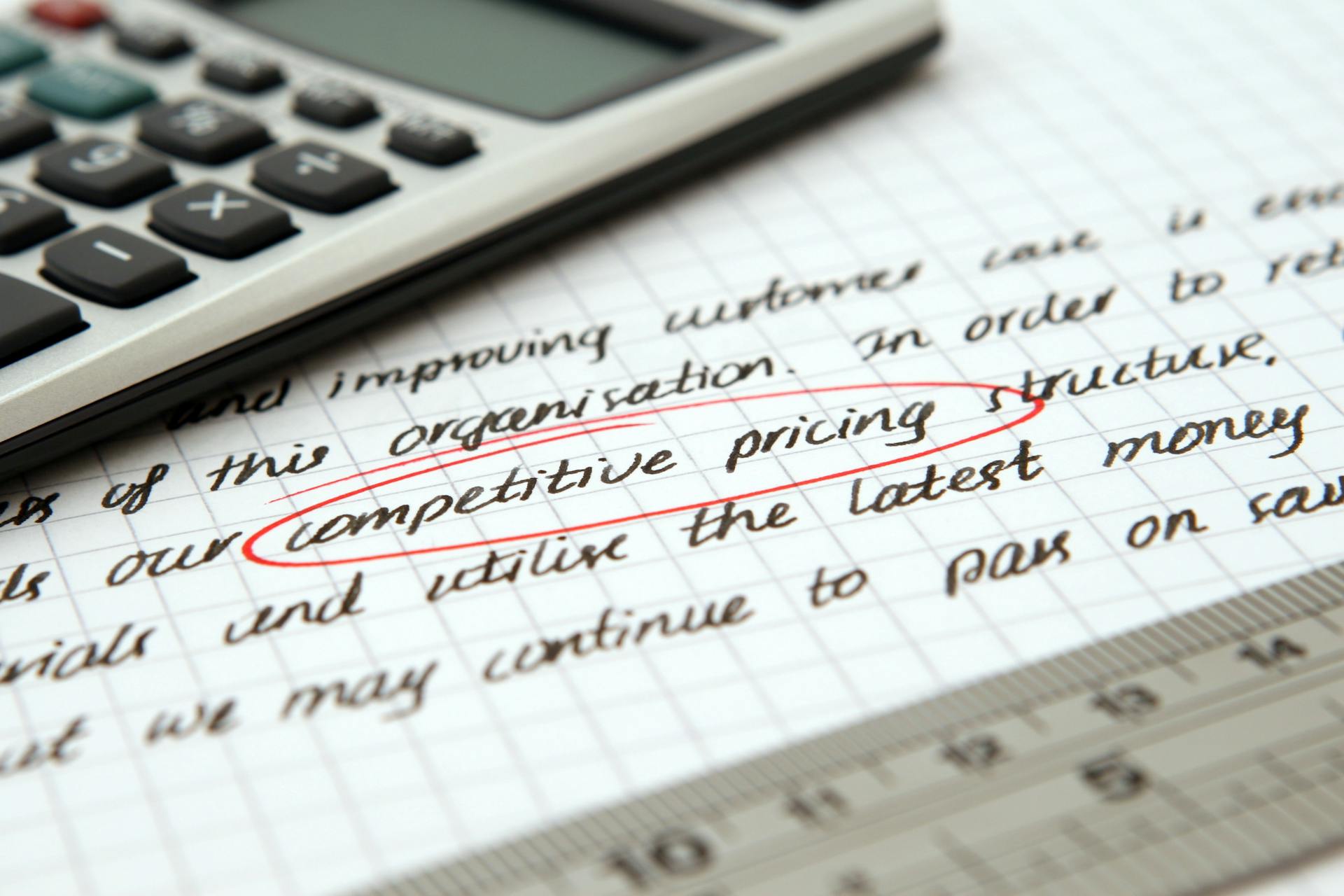
In today's fast-paced and competitive work environment, it is essential to strive for continuous growth and development. Setting a b2b developmental goal can help you achieve that. A b2b developmental goal refers to the goals that businesses set for their employees' professional development.
Setting a b2b developmental goal can have numerous benefits for both the employee and the employer. For employees, it provides an opportunity to learn new skills, gain knowledge, and improve their overall performance. It also helps in building confidence, increasing job satisfaction, and enhancing career prospects. For employers, setting such goals can lead to increased productivity, better engagement among employees, and reduced turnover rates.
In this article, we will discuss why setting a developmental goal for work is crucial and how it can benefit you as an individual or as an organization. We will also provide some tips on how to set effective b2b developmental goals that align with your personal or business objectives. So if you want to take your career or business to the next level, read on!
Related reading: B2b Strategies for Business Development
Learn more about what is a developmental goal, how to set them for work, and how this differs from an objective.

Developmental goals are a crucial aspect of personal and professional growth. These types of goals focus on enhancing skills, knowledge, and abilities that will contribute to overall development. Unlike performance goals, which focus on achieving specific outcomes, developmental goals are all about the process important to achieve those outcomes.
In this article, we'll explore what is a developmental goal and how to set them for work. Developmental goals are designed to create meaningful goals that will help individuals grow in their current role or prepare them for future opportunities. By focusing on areas such as communication, leadership, problem-solving or time-management, employees can develop the necessary skills needed to succeed in their careers. When setting developmental goals for work it's important to be specific and measurable. This ensures that progress can be tracked over time and adjustments can be made if necessary. So whether you're looking to advance in your current position or prepare for a new role within your company, setting developmental goals is an essential step towards achieving your career aspirations.
A fresh viewpoint: B2b Important Customer Service Skills
Raise Brand Awareness
Increasing brand awareness is an essential business objective for any b2b business. However, devising a plan to achieve this goal can be a problem. In simple words, the aim is to make your target audience aware of your brand and what you offer. An integrated marketing tactic that includes online and offline strategies such as social media engagement, email marketing campaigns, and participating in trade show meeting conferences is a step closer to achieving your b2b business goals.
Participating in trade shows or conferences is an excellent way of increasing brand awareness for a b2b business since it allows you to interact directly with potential clients. By having a booth at these events, you can showcase your products or services while engaging with attendees. Moreover, you can use social media channels such as LinkedIn or Twitter to promote your attendance at these events beforehand and during the event itself. Ultimately increasing brand awareness requires consistent effort across various channels coupled with creative thinking and promotion tactics that will differentiate you from competitors in your industry.
For more insights, see: B2b English for Marketing
The importance of a developmental goal

The importance of setting developmental goals is worth highlighting, especially in the world where individuals and organizations regularly set goals. It is a habitual task supervisors encourage their employees to undertake, as it provides a clear direction for growth and development.
When one sets a developmental goal, they are essentially outlining a roadmap for their personal or professional growth. It helps identify areas of improvement and provides an opportunity to challenge oneself beyond their comfort zone. Without such goals, individuals may find themselves stagnating, lacking motivation and direction to push themselves towards success. Therefore, setting developmental goals not only benefits one's career but also contributes significantly to their personal growth and wellbeing.
Explore further: B2b Smart Goals Examples
1. Discovering new talents
Setting challenging developmental goals for workers is essential in helping them discover previously unexplored talents leading to intellectual rewards. It is crucial for any organization to start at a low-level role and work their way up to a higher level. This is the ceo's journey, and every worker should read Mary Barras' story at General Motors for inspiration.
Helping workers set and achieve developmental goals is an essential aspect of retaining talented individuals in the business inside. By doing so, workers feel valued and motivated, leading to increased job satisfaction and productivity. It is through this process that organizations can discover new talents within their workforce and ultimately drive growth and success in their respective industries.
2. Increased long-term productivity and resilience
Setting developmental goals is essential for any business to stay ahead in today's constantly developing world. Updating workers' skill set means that they can stay up-to-date with cutting-edge technology and industry trends. This not only increases long-term productivity but also ensures future resilience, particularly during times of seismic impacts such as the ongoing Covid-19 pandemic.
One way businesses can achieve this is by being early adopters of new technologies such as video conferencing technology. This enables them to continue holding meetings and working remotely without the need for physical presence. By investing time and resources into setting developmental goals, a business can ensure its time remains fresh and ahead of the curve, ultimately leading to increased success and growth.
Revamp Your Customers' Experience for Maximum Satisfaction

Revamping your customers' experience is essential for any business, especially when it comes to B2B developmental goals. Top management should focus on process advancements that not only reduce costs but also improve the bottom line. With the online shift, operational efficiencies play a significant role in achieving business objectives effortlessly.
Operational efficiencies include offering automated order status updates, customers minimizing delivery times, controlling catalog visibility, and setting pricing tiers. By facilitating efficiency in these areas, businesses can provide a custom ordering experience that encourages repeat visits. A case study on Starbucks shows how creating efficiencies through a loyalty program rewarded Starbucks with 48 percent of customers using their loyalty apps regularly.
In conclusion, revamping your customers' experience is key to achieving B2B developmental goals. By focusing on operational efficiencies and providing a custom ordering experience, businesses can encourage repeat visits and ultimately improve their bottom line. Implementing a loyalty program like Starbucks can also facilitate efficiency and create customer satisfaction leading to long-term success.
Eradicate Errors In Order Management

Businesses face errors in order management due to manual handling and communication gaps. Product data inconsistencies, re-entering orders, and lack of inventory visibility are common culprits. Manual business rules can also lead to errors that hinder the primary business objective. For a B2B business, reducing order errors experienced by customers is crucial for success.
In a case study, ViewSource Technology Group aims to reduce order errors experienced by a leading manufacturer of metal wire products. The manufacturer realized that 53 retail customers had sold distinct parts that were highly expensive to produce but had not been properly tracked in their product inventory management (PIM) system. By implementing an automated PIM system, the manufacturer was able to capture all product data accurately and eliminate manual entry errors.
With an automated PIM system in place, the manufacturer could focus on streamlining their order management process to reduce errors caused by communication gaps and manual handling. By providing real-time inventory visibility to their retail customers, they could ensure that orders were placed accurately and fulfilled quickly. The result was increased customer satisfaction and improved business efficiency.
Related reading: B2b English for Business Communication
Boosting Your Sales: How to Skyrocket Your Orders!
When it comes to b2b developmental goals, boosting sales is often the focal point. But how do you achieve this? First and foremost, it's important to have a business strategy keeping your customers happy in mind. Happy customers are more likely to make repeat purchases, which is one of the ideal goals for any business. Ultimately, this will contribute to higher sales and growth.
It's also important to understand the differences between b2c and b2b buyers. While b2c buyers may be more likely to make impulsive purchases on their mobile phones after minimal product research, 68 percent of b2b customers prefer to research a product online before making a purchase decision. This means that having a strong online presence and providing detailed information about your products is crucial for driving engagement with potential customers.
Another key factor in boosting sales is having an effective sales team or automated ecommerce platform in place. Whether it's through personal interactions with a sales representative or through an easy-to-navigate website with clear calls-to-action, making the purchasing process as seamless as possible can significantly increase the likelihood of a sale. By focusing on these strategies, businesses can skyrocket their orders and reach their sales goals.
Frequently Asked Questions
What are the responsibilities for professional development?
Professional development responsibilities include staying up-to-date with industry changes, improving skills and knowledge through training and education, networking with peers, and taking ownership of personal career growth.
Why are company goals important?
Company goals are important as they provide direction and focus, align efforts towards a common objective, improve decision-making, enhance motivation and accountability, and measure progress towards success.
How to set Professional Development Goals?
To set professional development goals, start by identifying your strengths and areas for improvement. Then, set specific and measurable goals that align with your career aspirations and develop a plan to achieve them. Consider seeking feedback from colleagues or a mentor to ensure your goals are realistic and achievable.
How to set good personal development goals for work?
To set good personal development goals for work, identify areas you want to improve, create specific and measurable objectives, prioritize them based on importance and feasibility, and track your progress regularly to stay on track towards achieving your desired outcomes.
How do I set goals for my business?
To set goals for your business, start by defining what you want to achieve and breaking it down into specific, measurable objectives. Create a plan of action with clear timelines and regularly track your progress to stay on course towards success.
Featured Images: pexels.com


